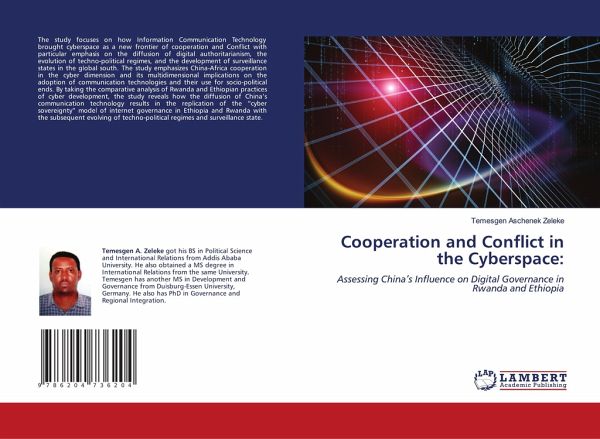
Cooperation and Conflict in the Cyberspace:
Assessing China's Influence on Digital Governance in Rwanda and Ethiopia
Versandkostenfrei!
Versandfertig in 6-10 Tagen
29,99 €
inkl. MwSt.

PAYBACK Punkte
15 °P sammeln!
The study focuses on how Information Communication Technology brought cyberspace as a new frontier of cooperation and Conflict with particular emphasis on the diffusion of digital authoritarianism, the evolution of techno-political regimes, and the development of surveillance states in the global south. The study emphasizes China-Africa cooperation in the cyber dimension and its multidimensional implications on the adoption of communication technologies and their use for socio-political ends. By taking the comparative analysis of Rwanda and Ethiopian practices of cyber development, the study r...
The study focuses on how Information Communication Technology brought cyberspace as a new frontier of cooperation and Conflict with particular emphasis on the diffusion of digital authoritarianism, the evolution of techno-political regimes, and the development of surveillance states in the global south. The study emphasizes China-Africa cooperation in the cyber dimension and its multidimensional implications on the adoption of communication technologies and their use for socio-political ends. By taking the comparative analysis of Rwanda and Ethiopian practices of cyber development, the study reveals how the diffusion of China's communication technology results in the replication of the "cyber sovereignty" model of internet governance in Ethiopia and Rwanda with the subsequent evolving of techno-political regimes and surveillance state.












